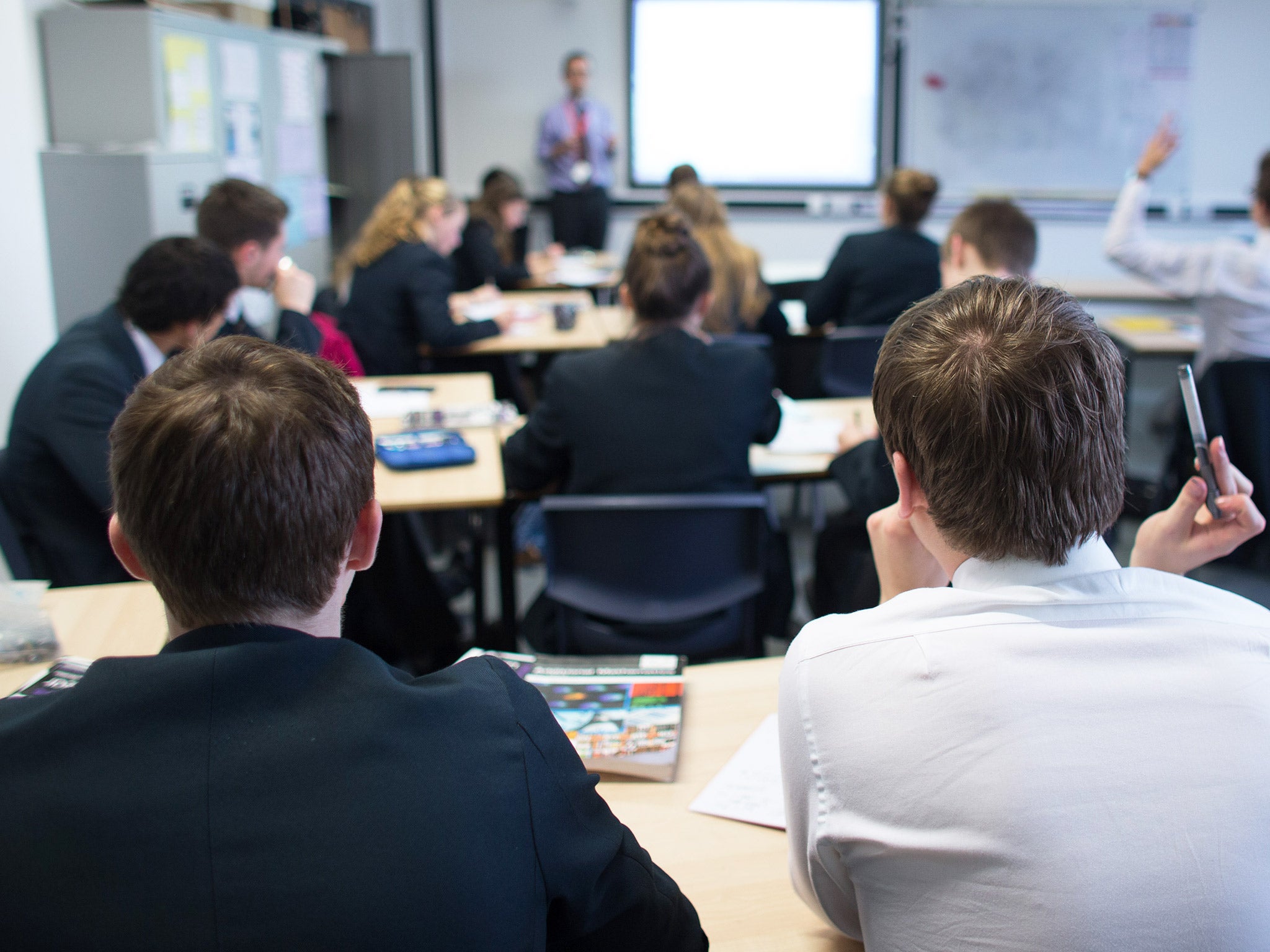State school students 'get better degrees' than private school pupils with same A-levels
Figures show that state school graduates tend to have higher degree outcomes than independent school graduates.

Students who attended state schools are more likely to get top degree passes than former independent school pupils with the same A-level grades, new research shows.
The figures, based on the degree results of all students who graduated in 2013/14, showed that state school graduates tend to have higher degree outcomes than independent school graduates with the same prior educational attainment. State school students who scored two Bs and a C at A-level, for example, did on average eight per cent better at degree level than their privately educated counterparts.
Sir Peter Lampl, chairman of the Sutton Trust - the charity which campaigns for equal access to education, said the research backed up calls for more to be done to ensure state school students - particularly those from disadvantaged backgrounds - were properly represented at university.
“The fact that they are more likely to get a better degree than their private school peers shows how important it is to improve access to help able young people fulfil their potential,” he added.
Professor Alan Smithers, director of the Centre for Education and Employment at Buckingham University, said the gap could be down to independent schools stretching their pupils more and getting the best out of them before they went to university. Conversely, some state school pupils are not pushed to their full potential until degree level.
In addition, private school pupils may slow down at university because they are more confident about securing a job whatever their degree score.
Professor Smithers said: “Independent school pupils tend to go on to better jobs and may be more relaxed about going to university. They may know they can get an offer of a place in chambers or in the family firm when they leave university.”
The study also prompted concern that white graduates did much better than those from black or ethnic minority backgrounds - with 76 per cent obtaining a first or upper second degree compared to just 60 per cent of those from ethnic minority backgrounds.
In addition, girls were more likely to score highly than boys - with 74 per cent gaining top level degree passes compared with 70 per cent.
Graduates from an area with high participation at university were also likely to fare better than those from low participation neighbourhoods - with 77 per cent achieving first or upper seconds compared with 66 per cent from areas with the lowest participation.
Professor Les Ebdon, director of OFFA - the university access watchdog, said the findings show “worrying and unexplained differences in results between groups of students”.
“A significant proportion of black and minority ethnic students, students from disadvantaged neighbourhoods and those who study part-time are getting through a university’s door but then missing out on a first or upper second class degree,” he said.
Madeleine Atkins, chief executive of HEFCE, said: “Once again, robust analysis shows persistent unexplained differences in degree outcome for particular groups of students.”
UPDATE
A previous version of this article reported that the Higher Education Funding Council for England (HEFCE) had found that based on the degree results of all students who graduated in 2013/14, 82 % of state school pupils got firsts or upper seconds, compared to 73% of those from independent schools. Following publication of this article, HEFCE has confirmed that that it made a transposition error, and in fact, 73 per cent of state school graduates gained a first or upper second class degree compared with 82 per cent of independent school graduates. The statistics have now been removed from the article. HEFCE has said that the transposition error did not affect the main finding of it report on on school type, which was that state school graduates tend to have higher degree outcomes than independent school graduates with the same prior educational attainment.
Join our commenting forum
Join thought-provoking conversations, follow other Independent readers and see their replies
Comments
Bookmark popover
Removed from bookmarks